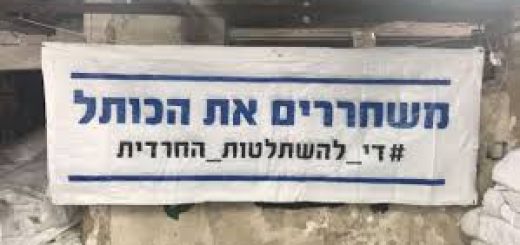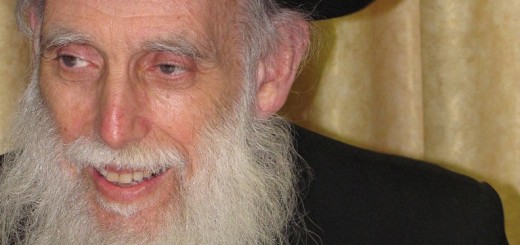The Good Guys Win

Last week a French appeals court handed down its long awaited decision in the libel action brought by France2 TV journalist Charles Enderlin and France2 against French media critic Phillipe Karsenty. Enderlin now joins Oscar Wilde, Alger Hiss, Westerbrook Pegler, and Rudolph Kastner in the pantheon of those who brought unnecessary libel actions to clear their names and ended up destroying their reputations forever. (In the case of Kastner, there is still a great historical debate over his efforts to negotiate the release of 1700 Jews from Budapest, including the Satmar Rebbe.)
It would be hard to overstate the importance of the decision of the French appeals court. At issue was the veracity of a 55-second clip filmed by Palestinian cameraman Talul Abu-Rahma at the Netzarim Junction on September 30, 2000 and broadcast that night by France2. In the voice-over, France2’s highly respected Israel correspondent Charles Enderlin intones that the scene before viewers is of a Palestinian boy, Muhammed al-Dura, being deliberately targeted and killed by Israeli troops. (Enderlin was not at the Netzarim Junction during the filming.)
The image of the Palestinian boy cowering behind his father quickly gained iconic status. Enderlin distributed the clip free of charge to any broadcaster that requested it. Photos of the “martyr” Mohammed al-Dura featured prominently in European demonstrations against Israel, on Osama bin Lade’s 9/11 video, and in the video prepared those who beheaded Wall Street Journal reporter Daniel Pearl. On Palestinian TV, Mohammed al-Dura beckons other young kids to join him in Moslem paradise as a martyr.
Within days of the first airing of the clip, doubts emerged about the veracity of Enderlin’s conclusions. Though Israel first apologized for the boy’s death, an internal investigation by the OC Southern Command concluded that the boy could not have been killed by Israeli fire. That same conclusion was subsequently reached by German filmmaker Esther Shapira and one of America’s most respected investigative reporters James Fallows.
But in 2004, French media critic Phillippe Karsenty went further. While he did not charge Enderlin with having originally known that the scene (actually six or seven scenes spliced together) shot by Abu-Rahma was faked, he wrote that Enderlin had been duped by his cameraman and ended up duping everyone who viewed the alleged death of Mohammed al-Dura. That same year, three well-known French journalists were permitted by France2 to see the Abu-Rahma’s outtakes. Two of them wrote in Le Figaro that the tapes do not even contain any evidence that Mohammed al-Dura ever died. Luc Rosenberg, a former editor of Le Monde, went further and concluded that the entire scene was staged. Professor Richard Landes of Boston University, who has coined the term Pallywood for a whole series of Palestinian deliberate media manipulations, reached the same conclusion after viewing the outtakes together with Enderlin.
DESPITE THE MOUNTING EVIDENCE that the al-Dura clip was something far different that what Enderlin described, Enderlin and France2 sued Karsenty for libel over the latter’s call for the dismissal of Enderlin and France2’s news chief Arlette Chabot. The results of the subsequent trial did little to reassure anyone who doubted the quality of French justice. The trial court found in favor of the plaintiffs, Enderlin and France2, even thought they did not introduce one bit of evidence at the trial court level. Most significant was their failure to show the rest of the film shot at the Netzarim Junction by Abu-Rahma. The plaintiffs’ entire case consisted of a letter from then French president Jacques Chirac testifying to Enderlin’s sterling reputation as a broadcaster and the (false) claim that Israel had never denied responsibility.
The first indication that things might go differently at the appellate level was the order last November by the presiding judge that France2 provide the entire 27 minutes of film shot by Abu-Rahma on September 30 2000. But those who had been following the case for years still did not permit themselves to raise their hopes too high. Even after France2 produced only 18 minutes of film rife with obviously staged scenes, they worried that the appeals court would still find a legal technicality to exonerate Enderlin and France2.
The 18 minutes of film provided by France2 showed not one Israeli soldier shooting towards the man and boy or any shooting at all. But it did show passersby strolling by non-chalantly, even as the man and boy were allegedly under sustained fire. There is no blood to be seen indicating that either man or boy had been hit by fire. At the end of the film, the boy is still very much alive, holding his leg aloft and looking around before assuming a prone posture.
In overturning the trial court’s finding in favor of Enderlin and France2, the Court of Appeals did not make an explicit determination that the France2 broadcast was a journalistic fraud — only that Karsenty was entitled to say so. But that technicality can provide scant consolation to Enderlin (though he has put a brave face on it in public and appealed to France’s Supreme Court.)
Read carefully, the Court of Appeals decision is devastating. Presiding judge Laurence Trebourg begins his opinion by agreeing that Karsenty’s characterizations of Enderlin’s reporting as a “masquerade” and “deception” that has incited much worldwide violence is undoubtedly defamatory in nature and strikes at the honor and reputation of the media professionals accused. The court then proceeds to note that under French law defamatory claims must be supported by proofs of their truth corresponding in their probative weight to the seriousness of the accusations.
But from then on everything goes downhill for the plaintiffs. The court cites at length the evidence amassed by Karsenty: the conclusions of other investigators and journalists that the film shown in no way supported the narration provided by Charles Enderlin and that the images were very likely staged; the other blatantly staged scenes in Abu-Rahma’s outtakes; Enderlin’s “imprudent” claim that he had cut the boy’s death throes in the final editing when no such death throes exist (a matter referred to more than once in the court’s opinion.)
The opinion describes with Gaullic understatement the testimony of Abu-Rahma as incapable of being considered perfectly credible. In addition, the court notes the impropriety of Enderlin’s failure to indicate to the viewer that he was describing events he had not himself witnessed. Finally, the court notes testimony that Enderlin had told others that the narration was justified not because it accurately reflected events of the day at Netzarim Junction, but because it reflected the larger reality of the Palestinian-Israeli conflict.
WHAT LESSONS CAN WE TAKE AWAY from this happy result? The first is that we should not abandon any playing field to our enemies, even when there are good reasons to suspect that it is not a level one and the chances of victory are slight. Community organizer Saul Alinsky once said, “Immoral enemies make stupid mistakes.” And Enderlin’s insistence on bringing a libel suit, even though the charges against his broadcast had gained almost no traction in the mainstream media (MSM) is one example.
A second lesson is that alternative sources of information have dealt a huge blow to the former monopoly of the MSM. We in the frum community tend to think of the blogosphere exclusively as a cesspool of character assassination and worse. But in many places in the world it is also a vital agent for freedom from oppressive dictatorships. Some of the greatest heroes on earth are anonymous bloggers in places like Iran and China casting a searching light on the leaders of their own societies. Dictatorships can no longer completely silence and terrorize their critics.
Nor is the salutary influence of alternate sources of information felt only in dictatorships. In the West as well, the oligopoly of the Left over elite humanities and social science faculties and the MSM has been largely broken by conservative think tanks and alternative news sources.
The French MSM paid almost no attention to Phillippe Karsenty or even Enderlin’s libel action, at least until Enderlin’s victory in the lower court. Only then did it proclaim Enderlin’s vindication. And it is similarly downplaying the Court of Appeals decision.
But it can no longer keep the news of the hoax from getting out, and that should give us all at least a brief moment of optimism. Sometimes the good guys do win.
This article appeared in the Yated Ne’eman on June 6th 2008




The lesson here is “Don’t bother me with facts, my mind is made up.”
The people who don’t like Jews and don’t like Israel will see only negative and will discount anythng positive. So what if this killing was staged, it serves the “greater good” in their minds. Zionism was a naive and simplistic assumption that the world would not hate the Jews if we had a secular state of our own. Herzl was wrong.
That being said, Israel has to figure out what its strategy is for long term viability in the sea of Islamic Fundamentalism and Arab “Humiliation”. Israel has had to play by a different set of rules than other countries that expelled or killed out the indiginous inhabitants. Being a “nice guy” doesn’t work but I really don’t know what the alternative stance should be. I am not willing to sink to the level of my enemies and destroy the moral justification for a state.
I was _thrilled_ with this verdict. I only hope that it manages to get
even a fraction of the publicity that the original, fraud generated.
Another wonderful benefit, although I can’t imagine it actually happening, would be that the MSM stop accepting all the “reports” from Paliwood at face value.
L Oberstein: I am not willing to sink to the level of my enemies and destroy the moral justification for a state.
Ori: IIRC you wrote you live in Baltimore. With all due respect, this is the kind of decision that belongs to the people in Israel. It’s their lives that are on the line. That is the reason I don’t vote in Israeli elections – I don’t live there, I don’t fight the wars or pay the taxes, so I don’t have the moral right to intervene even if legally I’m still a citizen.
I don’t think anything would work to make the Arabs reconcile to Israel’s existence:
1. Their governments, except maybe far away Iraq, are dictatorships that need an enemy to unify their people. They also cannot afford to show weakness by accepting Israel on any territory they claim as their own.
2. Arabs are used to long running feuds. If they have to wait 192 years to reconquer Jerusalem, they’ve done it before.
3. I think observant Muslims cannot accept non-Muslim rule on previously Muslim territories. It’s telling that Hamas TV teaches kids also about reconquering Al-Andalus (= Spain and Portugal).
Gallic not Gaullic. (Galling, this sort of mistake.)